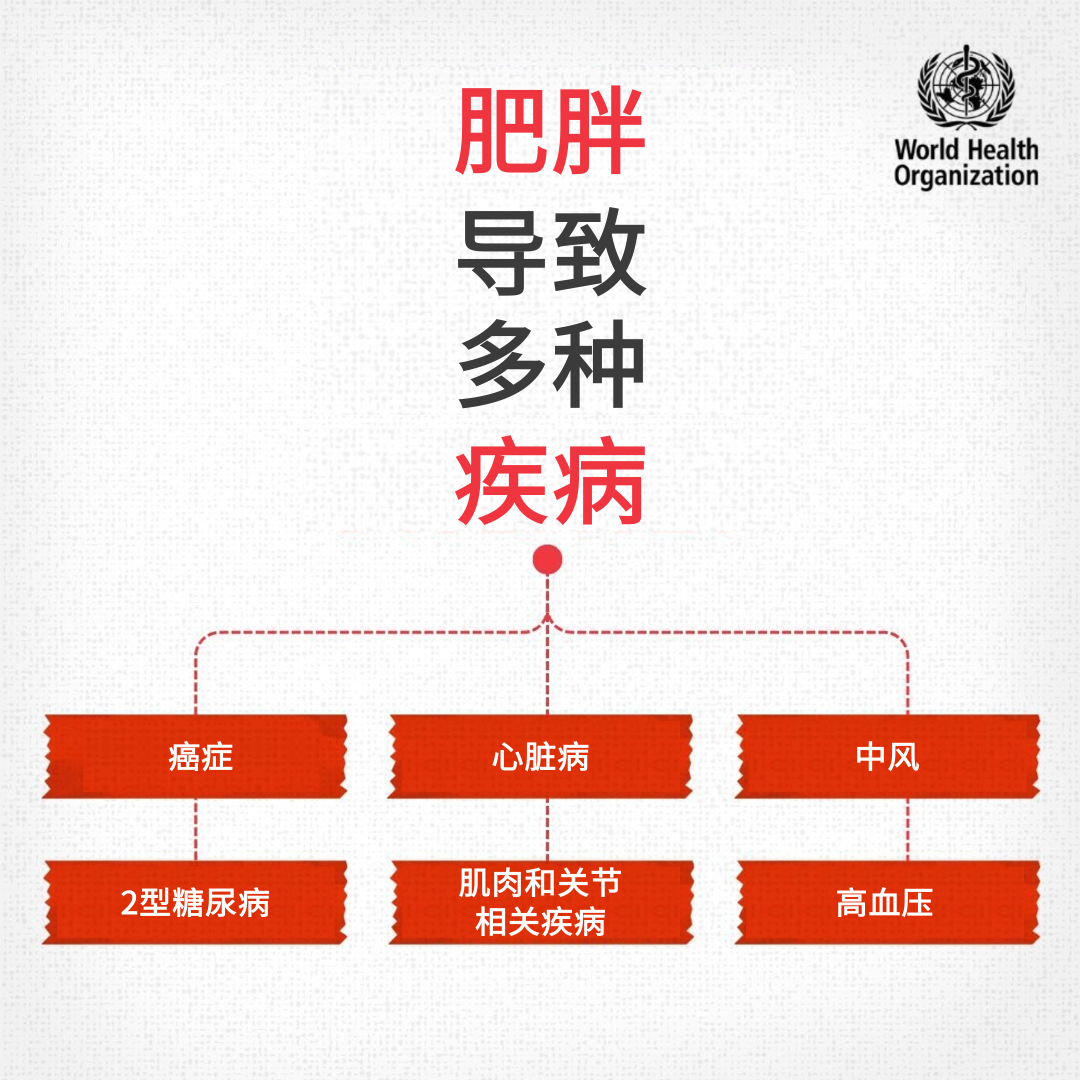There are currently over 1 billion obese people worldwide.
Image source:Unsplash/Bruna Branco
Shyam Bishen
Global Head of the World Economic Forum's Center for Health and Healthcare
A new study finds that the global food system and technology have shaped what and how much people eat—now, the number of obese individuals worldwide has surpassed 1 billion.
Obesity is a manifestation of malnutrition and can lead to a range of non-communicable diseases.
At the 2024 World Economic Forum Annual Meeting, experts discussed how governments and the public sector can tackle the obesity crisis.
"Malnutrition" most often makes people think of underweight individuals due to hunger, but the term actually applies to obese people as well.Being underweight and overweight/obese are collectively referred to as the "double burden" of malnutrition. Today, the global number of obese individuals has surpassed the number of those who are underweight.In fact, according to the latest research published in *The Lancet*, the global obese population has surpassed 1 billion—roughly one-eighth of the world's total population.The study collected data from 197 countries, covering more than 99% of the global population, to examine how the numbers of underweight and overweight/obese individuals have changed worldwide between 1990 and 2022. "This has been a period of dramatic transformation in food and nutrition."Research reveals that over the past three decades, adult obesity rates have more than doubled, while among adolescents aged 5 to 19, the rate has quadrupled.Southeast Asia is the only region where the number of underweight individuals exceeds that of obese people, while island nations in the Pacific and Caribbean regions, as well as countries in the Middle East and North Africa, recorded the highest combined rates of both underweight and obesity in 2022.The study also found that women have higher obesity rates than men. Meanwhile, independent research highlights a wage gap between obese and non-obese individuals, as well as a gender-based pay disparity within the obese population—specifically, obese women earn lower wages compared to their male counterparts in the same group.World Health Organization (WHO) Director-General Tedros Adhanom Ghebreyesus noted that the study "highlights the importance of diet, physical activity, and lifestyle choices—from early life through adulthood.""The Importance of Appropriate Care Services in Preventing and Managing Obesity."The definition and impact of obesityZero Hunger is Goal 2 of the 17 United Nations Sustainable Development Goals, aiming to "end all forms of malnutrition" by 2030—including obesity.The WHO defines obesity and overweight as "abnormal or excessive fat accumulation that poses a risk to health." Overweight and obesity are complex, multifaceted issues resulting from the interplay of biological, genetic, social, psychological, and environmental factors. It’s often mistakenly believed that obesity is simply the result of diet and exercise—when in fact, it’s far more nuanced than that.It is estimated that in 2019, 5 million deaths from non-communicable diseases (NCDs) were attributable to an elevated Body Mass Index (BMI). BMI is a measure used to determine whether a person is at a healthy weight based on their height and body weight.NCDs include metabolic cardiovascular diseases (such as hypertension and diabetes) and cancer, accounting for about three-quarters of all annual deaths.According to the American Medical Association, obesity may lead to over 200 comorbidities—conditions in which a person suffers from multiple diseases simultaneously—including heart disease and various types of cancer.The health impacts of obesity.
Image source:WHO
Research has been conducted on obesity as a "paradoxical manifestation of malnutrition," revealing that obese individuals tend to have greater deficiencies in essential nutrients compared to those with a healthy weight.Malnutrition occurs when the body doesn’t get enough nutrients or is unable to absorb them properly, potentially leading to negative impacts on physical performance, cognitive function, and overall well-being.The reasons behind the rising obesity rateThe rising obesity rate is due to changes in global food systems and consumption patterns, driven by the dual influence of economic and technological advancements.The Lancet study found that over the decades leading up to the COVID-19 pandemic, global incomes rose, and people spent more on food. At the same time, food systems shifted from self-sufficiency and local agriculture toward commercially driven products prioritizing transportation.In short, people's consumption patterns have shifted. In low- and middle-income countries, most people now have access to more calories, animal products, and sugar.Meanwhile, advancements in food-processing technologies and the rise of "food industrialization" mean we're consuming more ultra-processed foods (UPF). Compared to whole grains, fruits, and other fiber-rich foods, UPF consumption leads to "higher calorie intake and weight gain" in the human body.According to the British Medical Journal, UPF accounts for 58% of the diet of U.S. adults.These foods contain high levels of salt, sugar, additives, and preservatives, yet they’re inexpensive and easy to eat.The Lancet study points out: "Since the COVID-19 pandemic and the war in Ukraine, poverty rates have risen, food costs have increased—particularly for nutrient-rich foods.""Climate change can negatively impact food production and supply. These factors may lead to inadequate nutrition for some countries and households, while others may shift toward less healthy food options, further exacerbating both underweight and obesity issues."Additionally, changes in work and transportation habits have led to a decline in energy expenditure among adults, which may also contribute to rising obesity rates.The authors of the *Lancet* study noted: "There is an urgent global need to prevent obesity, support weight loss, and reduce disease risks among obese individuals.""Prevention and management are especially crucial, as the age of obesity onset has been declining, thereby increasing the duration of exposure."Dr. Tedros of WHO commented on the study, noting that to achieve the global goal of tackling obesity, "governments and communities must step up their efforts and implement evidence-based policies identified by WHO and national public health agencies.""Collaboration from the private sector is also crucial. The private sector must take responsibility for the health impacts caused by its products."At the World Economic Forum Annual Meeting held in Davos in January 2024, experts discussed strategies to tackle the obesity crisis.Nancy Brown, CEO of the American Heart Association, Glen Tullman, Founder and CEO of Transcarent, Shamsheer Vayalil, Founder and Chairman of Burjeel Holdings Plc, and Mads Krogsgaard Thomsen, CEO of the Novo Nordisk Foundation, jointly discussed how societies and healthcare systems can better prepare themselves to address this challenge.Experts' views echo Dr. Tedros's comments, emphasizing that obesity is a societal and systemic issue that requires collaborative action from multiple stakeholders.They emphasized that we must immediately implement early interventions, working collaboratively with parents and families to launch education and awareness initiatives targeting society's youngest members.The solutions include leveraging the impact of food labels, encouraging physical activity, and creating accessible pathways for people to obtain healthy foods."Most sodium is consumed through bread, but unfortunately, most consumers aren’t aware of this," Brown explained.She pointed out that integrating healthy foods into the healthcare system could significantly improve public health in the United States.However, the study's authors note that "people with low incomes and limited autonomy cannot access or afford" healthy foods and an active lifestyle."Unavailability and unaffordability of healthy foods, coupled with limited opportunities for playing games and participating in sports, contribute to unequal obesity rates and may undermine the effectiveness of policies aimed at addressing unhealthy food options."The study concludes that there is an urgent global need to develop programs that promote healthy nutrition—such as targeted cash transfers, subsidies or vouchers for nutritious foods, free school meals focused on health, and primary-care–based nutritional interventions.I clearly recognize that when tackling the obesity issue, we need to adopt a broader healthcare perspective and prioritize three key areas:- Strengthen the health system by integrating obesity care and management into the scope of routine primary healthcare.
- Strengthen training for healthcare professionals, as few have received adequate education on obesity or nutrition.
- Increase investment in research and ensure equitable access to care, as obesity disproportionately affects certain groups—typically those with lower incomes.
Businesses also have a role to play. The World Economic Forum’s “Healthy Workforce” initiative calls for collaborative efforts among multiple stakeholders to leverage the workplace as a platform for enhancing the overall well-being of employees, families, and society as a whole.A key component of this initiative is work on healthy weight and metabolism, focusing on raising awareness, sharing best practices, and supporting society as a whole in addressing the issue of obesity.The above content solely represents the author's personal views.This article is translated from the World Economic Forum's Agenda blog; the Chinese version is for reference only.Feel free to share this on WeChat Moments; please leave a comment below the post if you’d like to republish.
Translated by: Di Chenjing | Edited by: Wang Can
The World Economic Forum is an independent and neutral platform dedicated to bringing together diverse perspectives to discuss critical global, regional, and industry-specific issues.
Follow us on Weibo, WeChat Video Accounts, Douyin, and Xiaohongshu!
"World Economic Forum"






